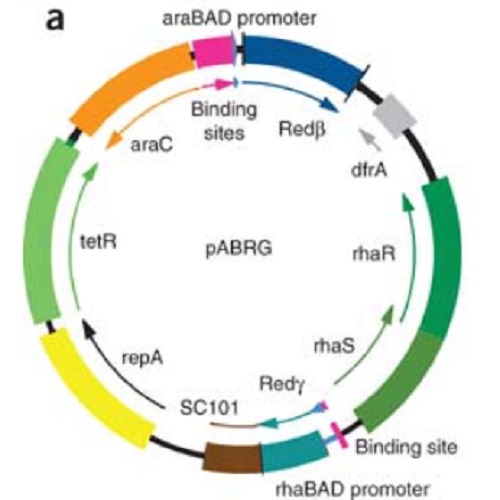High-efficiency counterselection recombineering for site-directed mutagenesis in bacterial artificial chromosomes.
Whereas bacterial artificial chromosomes (BACs) offer many advantages in studies of gene and protein function, generation of seamless, precisely mutated BACs has been difficult. Here we describe a counterselection-based recombineering method and its accompanying reagents. After identifying intramolecular recombination as the major problem in counterselection, we built a strategy to reduce these unwanted events by expressing Red? alone at the crucial step. We enhanced this method by using phosphothioated oligonucleotides, using a sequence-altered rpsL counterselection gene and developing online software for oligonucleotide design. We illustrated this method by generating transgenic mammalian cell lines carrying small interfering RNA-resistant and point-mutated BAC transgenes. Using this approach, we generated mutated TACC3 transgenes to identify phosphorylation-specific spindle defects after knockdown of endogenous TACC3 expression. Our results highlight the complementary use of precisely mutated BAC transgenes and RNA interference in the study of cell biology at physiological expression levels and regulation.

- Nat. Methods 2012 Jan 04;9(1):103-9
- 2012
- Cell Biology
- 22138824
- PubMed
Enabled by:
